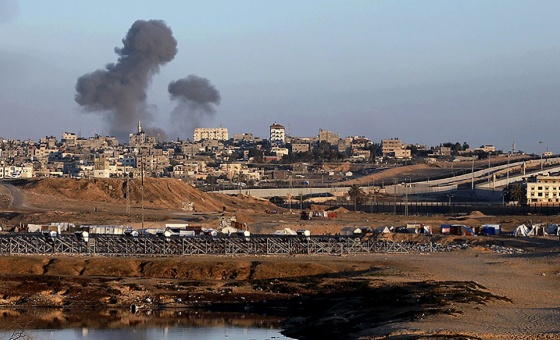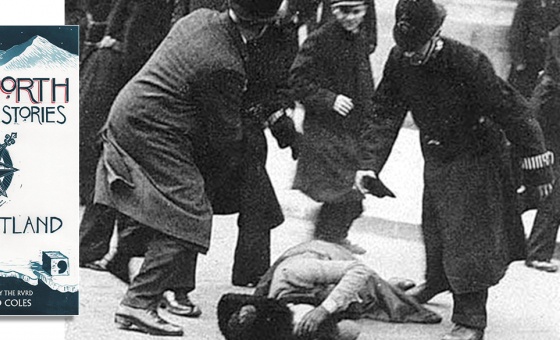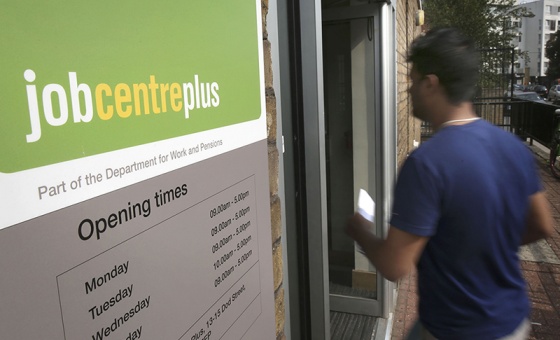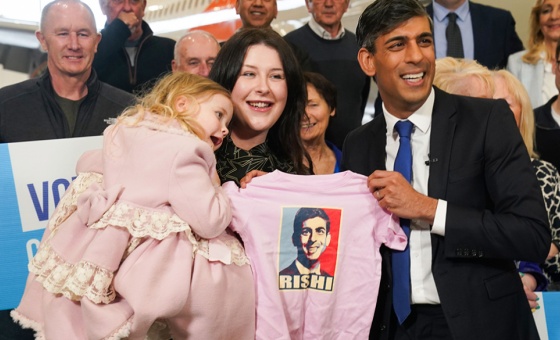This is the last article you can read this month
You can read more article this month
You can read more articles this month
Sorry your limit is up for this month
Reset on:
Please help support the Morning Star by subscribing here
COALITIONS have never been my cup of tea. Well, not the kind between political parties at least.
I had read about the coalition during the war to defeat Hitler, and that didn’t seem so terrible an idea, even if we may struggle to accept some of its excesses — not least banning this paper’s predecessor for a time.
Parliamentary parties had to come together then to defeat a common enemy, but what exactly is the common enemy that drives these relationships in peacetime?
Today’s political coalitions at home or internationally aren’t about anything so grand as defeating fascism, no matter how wild the rhetoric may get.
Tory Defence Secretary Grant Shapps/“Michael Green,” told us we have now moved from a “postwar period to a pre-war period” as he announced ramped-up spending on arms to impress our coalition partners in the answer without a question that is Nato.
The nominal leader of the opposition and former human rights lawyer Sir Keir Starmer is not above engaging in the similarly insane Nato courtship ritual of promising to expand our illegal nuclear arsenal while telling the world he’s willing to use it.
On war then, it increasingly looks like an informal coalition is forming at home to satisfy a formal one on the world stage, with no more grand a vision underpinning it than creating more billionaires, propping up ailing economies by coming up with more sophisticated ways of killing and scapegoating those lucky enough to escape the carnage.
The hope in all of this lies in the coalition forged around the world for the cause of peace — galvanised by the visions of hell created by the Israeli war machine in Gaza. One thing is for certain, it doesn’t lie with the political coalitions of the West who, despite their craven attempts to portray themselves as heirs to the leaders who allied to defeat Hitler, reveal themselves daily as toy titans.
As these international coalitions have become dominated by those whose next decent idea will be their first, dissent at home is labelled “extremism,” while even the moderate aims of democratic socialism are equated with the hard right.
The road to a more just society isn’t through actually doing anything to achieve it, we hear, but by sitting in horseshoe-shaped elected chambers and pretending we’re all after the same thing — some in elected office even go beyond the pretence and actually believe this Sorkin-inspired tripe.
I am old enough to remember the recreation of the Scottish Parliament, eventually housed in a shiny new public-facing building in Holyrood, equipped with that all-important horseshoe-shaped chamber and filled with parliamentarians elected under a system many barely understood — if at all — which would consign majoritarian rule to the past as we marched into the sunny uplands of a new and eternal centre-left consensus.
Even all those years ago, I can remember wondering: “What fresh hell is this?”
The early years of the Scottish Parliament saw eight years of uninterrupted Labour-Lib Dem coalition. It would be churlish in the extreme for me to claim that those years did not see anything positive. Free personal care was instituted while Tony Blair’s university tuition fees were never introduced at all, and the long overdue process of land reform began.
The catch was that new schools and hospitals built in that era were, with virtually no exceptions, built using PFI deals that would have made Arthur Daley blush.
The price of that final Labour-Lib Dem coalition left a final sting in the tail for Labour. On the day it left office in 2007, the single transferable vote system was used in council elections throughout the country, wiping out hundreds of the party’s councillors at a stroke and ensuring that Scottish local government slipped into a rudderlessness it has paid for on each Budget day since.
Coalition deals narrow possibilities, silence honest dissent and turn political discourse into the kind of boring mush that feeds the “they’re all just the same” argument — not least because it guarantees that a good chunk of them are forced to be in public, whether they like it or not.
Scottish Labour is still paying the price, having never increased its Holyrood vote or representation since 1999.
Whatever political disagreements I may have with the SNP, they clearly understood this in 2007 when they chose to govern alone as a minority.
After the exceptional 2011-16 parliament which saw them win a majority, the SNP chose minority government once more until 2021, becoming increasingly reliant on Green votes to pass Budgets and build a coalition for another crack at separation.
In that latter period, I watched in baffled horror as Budget after Budget slashing services was passed with Green support after supposed “tough” negotiations which largely involved the Greens winning what the SNP had already planned to give them in the process.
At this time, such was the toxicity of Labour, Scottish Green co-leader Patrick Harvie could have demanded a helicopter and a billion dollars in used non-sequential notes and got it. OK, perhaps a Green wouldn’t have been keen on the helicopter, but something more than platitudes about looking at some policy or other from the SNP didn’t seem to me to be an unreasonable ask.
This apparent lack of ability or will to actually conduct a negotiation came back to bite when Harvie and his co-leader Lorna Slater entered a formal coalition with the SNP in 2021.
Too clever by half, the Scottish Green leadership attempted a quantum coalition, promising members they could be on the inside and outside at the same time.
By the time the ditching of a climate change target spurred Green Party membership into action to demand another ballot on the agreement last week, the damage to the party’s reputation — by putting Green MSPs such as Ross Greer up to oppose rent controls and defend landlords’ human rights just weeks before SNP ministers announced rent controls, and Lorna Slater signing over the nation’s forests in the largest PFI deal in Scottish history — was done.
Humza Yousaf pulling the plug on the coalition before Green members could vote on its future was just the final insult.
The First Minister acted to appease those who will not be appeased in his own increasingly fractious party while hoping to take his destiny back into his own hands, while his erstwhile partners — Harvie and Slater — have been forced into attacking him in the strongest terms after staking their credibility with Scottish Green Party members on the coalition’s future.
After four years in coalition, a party long in power and yearning for new legs now stands on the eve of civil war, and another once able to claim clean hands and good intentions — if little else — lies sullied with cuts and privatisation.
As their political careers lie in tatters, the coalition veterans have clung to a Bill that might one day deliver permanent rent controls as the “win,” but the truth is even that had to be dragged out of their cold, dead hands by tenants’ union Living Rent.
The thousands who died in the throes of addiction didn’t win, the kids who have lost teachers didn’t win, the colleges on the brink of bankruptcy didn’t win, and neither did the social care workers who are rallying outside Parliament to demand a decent living while yards away ex-ministers whined about losing their sinecures.
The only coalitions that have ever delivered for any working people are the ones we built ourselves and, looking at that rally outside Parliament on Thursday and the growing militancy across our land, it’s clear we will again.












